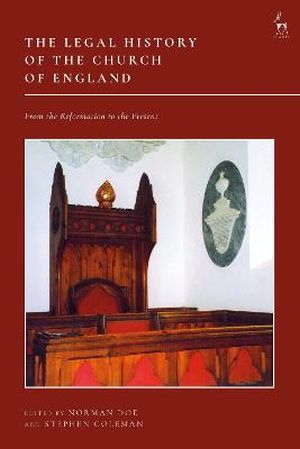
The first comprehensive analysis of the principal legal landmarks in the evolution of the established Church of England since the Reformation. It explores the foundations of ecclesiastical law and considers its crucial role in the development of the Church of England over the centuries.
The law has often been the source of major political and theological controversies, within and outside the Church, including the Reformation itself, the English civil law, the Restoration and rise of religious toleration, the impact of the industrial revolution, the ritualist disputes of the 19th century, and the rise of secularisation in the 20th. The book examines key statutes, canons, case-law, and other instruments in fields such as church governance and ministry, doctrine and liturgy, rites of passage (from baptism to burial) and church property. Each chapter studies a broadly 50 year period, analysing it in terms of continuity and change, explaining the laws by reference to politics and theology, and evaluating the significance of the legal landmarks for the development of church law, and its place in wider English society.